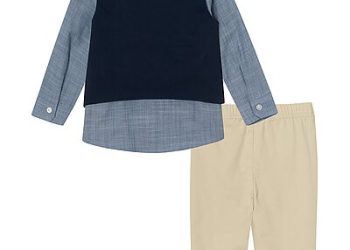Introduction
Sustainable seafood consumption is crucial for protecting our oceans’ health and ensuring the long-term viability of fish populations. In this article, we will explore the importance of choosing sustainable seafood and provide tips for responsible seafood consumption.
Understanding Sustainable Seafood
Sustainable seafood refers to fish and shellfish harvested using methods that minimize environmental impact and ensure the long-term health of marine ecosystems. Sustainable seafood is harvested in a way that maintains the target species’ population levels and does not harm other marine life or habitats.
Environmental Impact of Unsustainable Fishing Practices
Unsustainable fishing practices, such as overfishing and destructive fishing methods, pose significant threats to marine ecosystems. Overfishing can deplete fish populations, disrupt marine food chains, and lead to the collapse of fisheries. Destructive fishing methods, such as bottom trawling, can damage sensitive marine habitats like coral reefs and seagrass beds.
Benefits of Choosing Sustainable Seafood
Choosing sustainable seafood has numerous benefits for the environment and future generations. By supporting responsible fishing practices, consumers can help conserve fish populations, protect marine habitats, and promote the long-term sustainability of fisheries. Sustainable seafood also supports fishing communities that rely on healthy oceans for their livelihoods.
How to Identify Sustainable Seafood
Consumers can identify sustainable seafood by looking for certification labels and eco-labels, such as the Marine Stewardship Council (MSC) and Aquaculture Stewardship Council (ASC) certifications. These labels indicate that the seafood has been responsibly sourced and meets specific sustainability criteria. Additionally, seafood guides and online resources provide information on sustainable seafood choices and seafood to avoid.
Tips for Responsible Seafood Consumption
When purchasing seafood, consider choosing local and seasonal options, as they are often more sustainable and support local fishing communities. Diversifying seafood choices can also help reduce pressure on overexploited species. Consumers can further support sustainable seafood by purchasing from retailers and suppliers committed to responsible sourcing practices.
Avoiding Unsustainable Seafood
Certain species are particularly vulnerable to overfishing and should be avoided or consumed sparingly. Examples include bluefin tuna, Chilean sea bass, and shark. Additionally, consumers should be wary of seafood products with unsustainable sourcing practices, such as those associated with illegal, unreported, and unregulated (IUU) fishing.
Making Informed Choices When Dining Out
When dining out, consumers can inquire about the sourcing of seafood dishes and choose restaurants that prioritize sustainable seafood options. Supporting restaurants that adhere to sustainable seafood practices encourages the broader food industry to adopt more responsible sourcing practices.
Conclusion
In conclusion, choosing sustainable seafood is essential for safeguarding marine ecosystems and ensuring a sustainable future for seafood. By understanding the environmental impact of seafood consumption and following tips for responsible seafood consumption, consumers can make a positive difference for the oceans and future generations.

FAQs
- How can I tell if seafood is sustainably sourced?
- Look for certification labels like MSC and ASC, ask questions about sourcing, and consult seafood guides for information on sustainable choices.
- Why is overfishing a concern?
- Overfishing can deplete fish populations, disrupt marine ecosystems, and threaten the livelihoods of fishing communities.
- Are there any sustainable alternatives to popular seafood choices?
- Yes, many sustainable alternatives exist, such as farmed tilapia, mussels, and sardines, which have lower environmental impacts.
- What can I do to support sustainable seafood as a consumer?
- Choose sustainably sourced seafood, advocate for sustainable seafood practices, and support policies that promote responsible fishing.
- Is wild-caught seafood always better than farmed seafood?
- Not necessarily. Both wild-caught and farmed seafood can be sustainable or unsustainable, depending on how they are harvested or produced.




